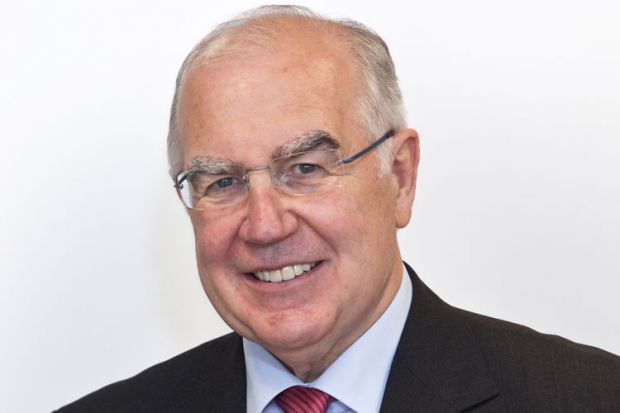Source: University of Leeds
Sir Alan Langlands, vice-chancellor, University of Leeds
A group of postgraduate research students who teach have bombarded their vice-chancellor with emails to highlight what they term their “appalling treatment”.
Campaigners from the University of Leeds say that more than 80 postgraduates emailed Sir Alan Langlands to warn of impending action “against their poor treatment”, which includes zero-hours contracts and unpaid preparation time, according to the group.
The hourly paid teachers called for reform of a temporary code of employment practice, which they say has been unduly delayed.
More than 1,000 postgraduate research students at the Russell Group institution hold teaching positions. An interim code, outlining conditions for employing them, was introduced in September 2013 and was due to be updated for the following academic year.
The email, sent to Sir Alan and the acting dean of postgraduate research studies, Edward Spiers, says: “Our poor treatment has gone on too long. The contracts, the pay, the lack of consultation, the unpaid work for preparation time – it is not good enough.”
“Given some of the examples of appalling treatment PGRs [postgraduate research students] have had to accept over the last year, the reform of the Code was an absolute must…An increasingly large number of PGRs will be commencing a campaign against their poor treatment,” it adds.
In a reply sent last month, Sir Alan, former chief executive of the Higher Education Funding Council for England, says that the interim code gave postgraduate researchers who teach “worker status” while other discussions concluded.
He adds that the Graduate Board, with representatives from Leeds University Union and postgraduate research students, agreed that the interim code should remain in place for another year so that the results of a survey of PGRs could be considered ahead of an update.
“However, this will not prevent us from implementing agreed changes during 2014-15 where it is sensible to do so,” he writes.
Sir Alan adds that under the new process, postgraduate research students who teach will be given a schedule of work at the start of each semester outlining their hours, including preparation time, and pay. “The university commits to paying these hours as long as they are worked,” according to the email.
In a statement to Times Higher Education, Professor Spiers says: “We do not intend to leave the existing arrangements in place for 2014-15.”
He adds: “We have been consulting with representatives of the postgraduate researchers on these new arrangements and, with their feedback, are improving practices even further. We expect to implement the new changes from September 2014.”
The university said that Sir Alan and Professor Spiers received only 25 emails and not all of them were from postgraduate research students at Leeds. But a spokesman for the campaign, who wished to remain anonymous, said they were copied in on more than 80.
Mark Taylor-Batty, president of the Leeds University and College Union branch, said: “A code of practice agreed by all relevant parties is essential to eliminate unpaid teaching and marking and the use of zero-hours contracts.”
Register to continue
Why register?
- Registration is free and only takes a moment
- Once registered, you can read 3 articles a month
- Sign up for our newsletter
Subscribe
Or subscribe for unlimited access to:
- Unlimited access to news, views, insights & reviews
- Digital editions
- Digital access to THE’s university and college rankings analysis
Already registered or a current subscriber?





